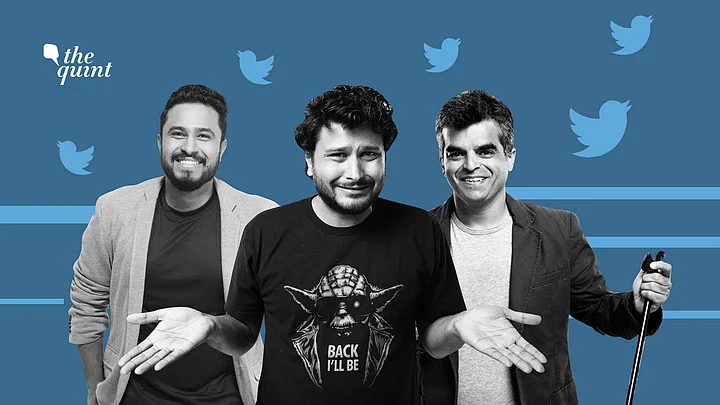A controversy transpired over the past week where old videos, interviews and tweets of celebrities resurfaced online. Stars faced criticism for their tweets, jokes & use of casteist slurs. The reason behind the uproar was the content - outright casteist and sexist.
The controversy started when comedian Neville Shah was called out for mocking doctors from lower castes. What followed soon was a host of other celebrities being accused on similar grounds. The list of stars criticised for casteist remarks included Yuvraj Singh, Salman Khan, Randeep Hooda, Munmun Dutta, Yuvika Chowdhury, Atul Khatri and many more. The list of celebrities, comedians especially, who have not made casteist remarks would perhaps be shorter than those who have.
While the content, jokes and punchlines of the comedians differed, the one thing common in all of them was the pattern of punching down on lower castes. The topics involved mocking constitutional reservations, ridiculing lower-caste occupations, etc. One running gag, in particular, was abusing Mayawati, the BSP supremo and four-time Uttar Pradesh Chief Minister.
Comedian Atul Khatri in an old tweet said, "BMC getting machines which lures mosquitos & kills. Next have tents with Sunny Leone outside, lure rapists & inside unleash Mayawati on them". Similarly another popular comedian Abish Mathew had tweeted "Mayawati is so ugly, only thing she can erect are statues".
Bollywood actor Randeep Hooda too had made a distasteful sexual joke about Mayawati. These jokes did not only lack humour but also basic human decency. When PM Narendra Modi recently referred to Mamata Banerjee as "Didi, ooh Didi", politicians, media and the common public were all too quick to point out the misogynistic undertone in his speech, and rightly so. So why does this sympathy not get extended to Mayawati, another veteran woman Chief Minister?
Another controversy surrounding caste erupted when actors Munmun Dutta and Yuvika Chowdhury used a casteist slur "Bhangi", a Dalit community, in a degrading manner. In the past, actor Salman Khan and cricketers Ravichandran Ashwin and Yuvraj Singh have also been guilty of the same. While some of them apologised citing caste ignorance, it exposed how casteist slurs are routinely used to remind lower castes of their place.
Most celebrities, however, cried foul of being victims of cancel culture. What they failed to understand and acknowledge was their privilege. Most comics are men, and almost entirely all are upper-caste. What this reveals is a serious lack of minority perspective in Indian comedy.
In 2018, many popular comedians were accused of sexual harassment in the #MeToo movement, however most got away scot-free. Therefore cancel culture is non-existent for the privileged. Today the industry has made strides towards being more gender-sensitive, but caste sensitivity is still lacking.
While comedians used the excuse that their remarks were age-old, what they failed to realise is that the jokes about Mayawati or Dalits shouldn’t have been said in the first place.
The only difference between 10 years ago and today, apart from marginalised claiming the narrative, has been the democratisation of social media. Ten years ago, access to the internet and using social media was a luxury only the upper castes could afford, but now that the internet has become a necessity rather than a privilege, lower castes have made their voices heard online, albeit it has fallen on deaf ears of celebrities.
The reservation and quota jokes might seem harmless to the upper-caste comedians, but to Dalits they are a reminder of the constant abuse and harassment they face every day.
Having their merit questioned is by no means a new phenomenon for those belonging to marginalised castes, neither are the deaths of Rohith Vemula and Dr Payal Tadvi, two lower-caste students, forgotten. Dr Tadvi, the first doctor from her community, was bullied because of her Adivasi identity by her upper-caste classmates. This caste harassment eventually took her life, and those who drove her to this point are walking free today.
The upper-caste male comics erred in differentiating between the oppressor and oppressed. Dark comedy in its very essence makes light of serious issues. But the comedians doubled down on the trauma of the marginalised - insulting their merit, leaders and identity. One key ingredient all the casteist jokes lacked was lived experience, something an upper caste can never have. In a video that became viral amidst the controversy, an upcoming marginalised caste comedian Manaal Patil says in his set, "Reservation got us into the college, but the Brahmins still didn't let us enter the classroom."
What was different about Manaal's set, compared to all the other upper-caste comedians' jokes about reservation, was that he punched up on the oppressor, not down on the oppressed - something Indian comedy seriously lacks, but desperately needs.
(This is an opinion piece, and the views expressed are the author’s own. The Quint neither endorses nor is responsible for them.)
